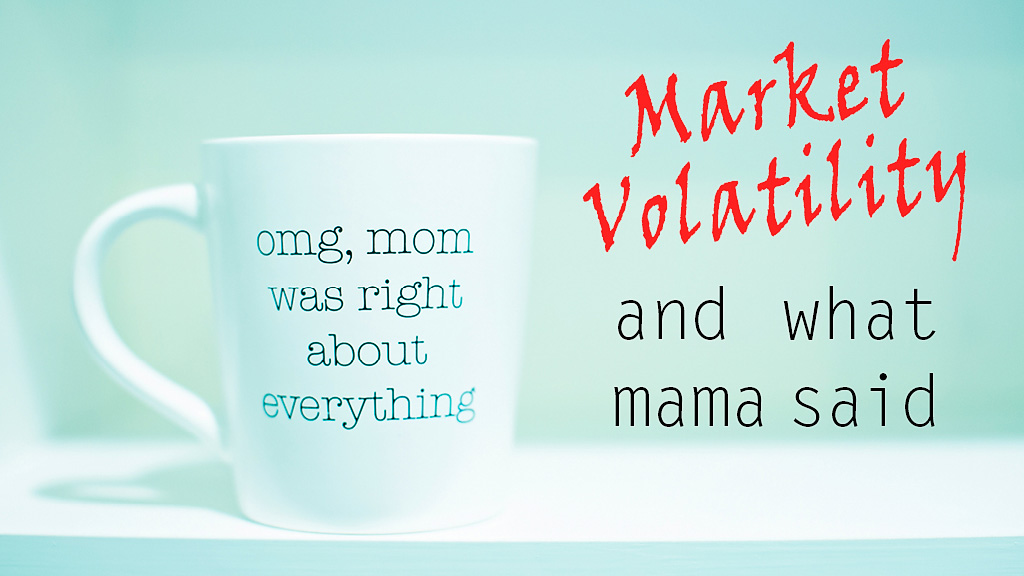Market Volatility and What Mama Said

Mama said there’d be days like this, but it doesn’t make them any easier. The kind of market volatility we are experiencing is normal and natural. But knowing volatility is normal and natural and seeing all the data that demonstrates that it’s normal and natural doesn’t make it any easier.
This is because money is an emotional matter. The money we have saved and carefully invested represents a lifetime of sacrifice and hard work. It represents safety, security, and peace of mind. It represents support for causes we care deeply about and it represents a legacy that we leave to the next generation. With this context, it is no surprise that market volatility causes an emotional response. It causes us to feel anxious and it causes us to want to do something to reduce the volatility. What many investors choose to do is sell investments and go to cash. From an emotional perspective, going to cash is entirely understandable.
The problem is making investment decisions based on emotions increases the likelihood of bad outcomes.
Selling investments and going to cash feels like we are making ourselves safer at that moment, when, in reality, we are actually decreasing the expected return of our investments and we are reducing our ability to achieve our long-term financial goals. In short, our attempts to decrease risk often have the opposite effect.
Patient, disciplined investors are rewarded with strong returns that very often follow shortly after market declines. The chart below shows clearly the returns that investors stand to miss if they go to cash in an attempt to reduce their exposure to volatility.
Missing just the five best days in a given year can have a dramatic effect on your long-term return.
This is particularly important because the best days tend to occur in close proximity to the worst days. The bottom line is that going to cash can result in missing some of the returns we need following a market correction. A systematic, disciplined approach will yield the best outcome.
Performance of the S&P 500 Index, 1990-2017*

If market volatility is causing you to feel anxious, please know that you are not alone. It is normal and natural. But it is also very important to understand that using emotions to make investment decisions is a bad idea.
Mama said there’d be days like this, and she also told us not to put all our eggs in one basket. We listen to Mama. Because markets are volatile, Baker Boyer builds well-diversified, balanced portfolios. We hold a broad spectrum of assets that react differently than stocks to market volatility. This insures a smoother ride than we would achieve with stocks alone. If you have any questions or concerns about current market volatility, please do not hesitate to contact anyone on your team at Baker Boyer. We are here to help.
If you'd like to dig deeper into related data and charts, please review our presentation on Market Declines and Volatility.


